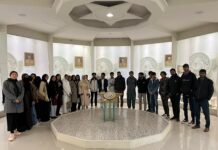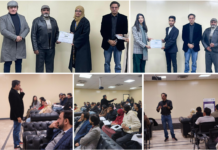- Ramadan, the ninth month of the Islamic lunar calendar, is a period of profound spiritual reflection, self-discipline, and communal unity for Muslims worldwide.
- Fasting from dawn until sunset, adherents abstain from food, drink, and other physical needs to focus on spiritual growth.
- For students, this sacred month presents unique challenges in balancing academic responsibilities with increased religious observances.
- However, with strategic planning and mindful practices, it is possible to harmoniously integrate studies and worship, leading to a fulfilling and productive Ramadan experience.
Understanding the Significance of Ramadan
Ramadan is more than just a month of fasting; it is a holistic journey encompassing spiritual rejuvenation, moral introspection, and community engagement. The act of fasting, or sawm, is intended to cultivate empathy for the less fortunate, reinforce self-control, and deepen one’s connection with Allah. This period also emphasizes increased prayer, Quranic recitation, and charitable deeds, fostering a comprehensive environment for personal growth.
Challenges Faced by Students During Ramadan
 Students often encounter specific challenges during Ramadan, including:
Students often encounter specific challenges during Ramadan, including:Altered Sleep Patterns:
Engaging in pre-dawn meals (suhoor) and late-night prayers (taraweeh) can disrupt regular sleep cycles, potentially affecting concentration and memory.
Nutritional Considerations:
Extended fasting hours necessitate careful meal planning to maintain energy levels and cognitive function.
Time Management:
Balancing academic commitments with increased religious activities requires effective scheduling to ensure neither aspect is neglected.
Have Your Read
- 5 Books Every Student Must Read During their Bachelors
- Building Dreams: How University of Rawalpindi is Shaping the Future of Education in Pakistan
- Top Skills Employers Wants in a Graduate and How to Develop Them in a University.
Strategies for Balancing Studies and Worship
To navigate the unique demands of Ramadan, students can implement the following strategies:
Develop a Personalized Schedule
Align daily activities with prayer times to create a structured routine. Utilizing the early morning hours after Fajr for intensive study sessions can be particularly effective, as this time is often free from distractions and holds spiritual significance.
Prioritize Tasks with Intentional Planning
Identify and focus on high-priority academic tasks, breaking them into manageable segments. The Pomodoro Technique, which involves working in focused intervals followed by short breaks, can enhance productivity and prevent burnout.
Incorporate Spiritual Practices into Breaks
Use study breaks for spiritual activities such as dhikr (remembrance of Allah), short prayers, or Quranic recitation. This integration ensures continuous spiritual engagement without compromising academic responsibilities.
Maintain a Balanced Diet
Consuming nutrient-dense foods during suhoor and iftar is crucial. Incorporate complex carbohydrates, proteins, and healthy fats to sustain energy levels. Staying hydrated during non-fasting hours also supports cognitive function and overall well-being.
Optimize Sleep Hygiene
Aim for quality sleep by taking short naps during the day and creating a restful nighttime environment. This approach helps mitigate the effects of altered sleep patterns and supports alertness during study periods.
Engage in Light Physical Activity
Incorporate gentle exercises, such as stretching or walking, to boost energy levels and enhance mood. Timing these activities appropriately ensures they complement both fasting and study schedules.
Leverage Technology for Spiritual and Academic Growth
Utilize apps and online resources to facilitate Quranic studies, track prayer times, and manage academic tasks. Mindful use of technology can enhance both spiritual and educational experiences during Ramadan.
Foster a Supportive Community
Engage with peers and family members to create a supportive environment that encourages both academic excellence and spiritual growth. Participating in group studies or communal prayers can provide motivation and a sense of belonging.
Embracing the Full Benefits of Ramadan
Beyond the immediate spiritual rewards, Ramadan offers numerous benefits that can positively impact academic performance:
Enhanced Self-Discipline:
The self-control practiced during fasting can translate into improved focus and determination in studies.
Improved Time Management:
The structured nature of Ramadan encourages meticulous planning, a skill transferable to academic pursuits.
Strengthened Community Bonds:
Engaging in communal activities fosters a support system that can alleviate academic stress and promote well-being.
Wrapping Up
Ramadan presents a unique opportunity for students to cultivate a harmonious balance between their educational obligations and spiritual aspirations. By implementing thoughtful strategies and embracing the holistic essence of this sacred month, students can achieve personal growth, academic success, and a deeper connection with their faith. This balanced approach not only enriches the Ramadan experience but also lays the foundation for sustained productivity and spiritual fulfillment beyond the holy month. University of Rawalpindi wishes it students a very happy and a prosperous Ramadhan.












